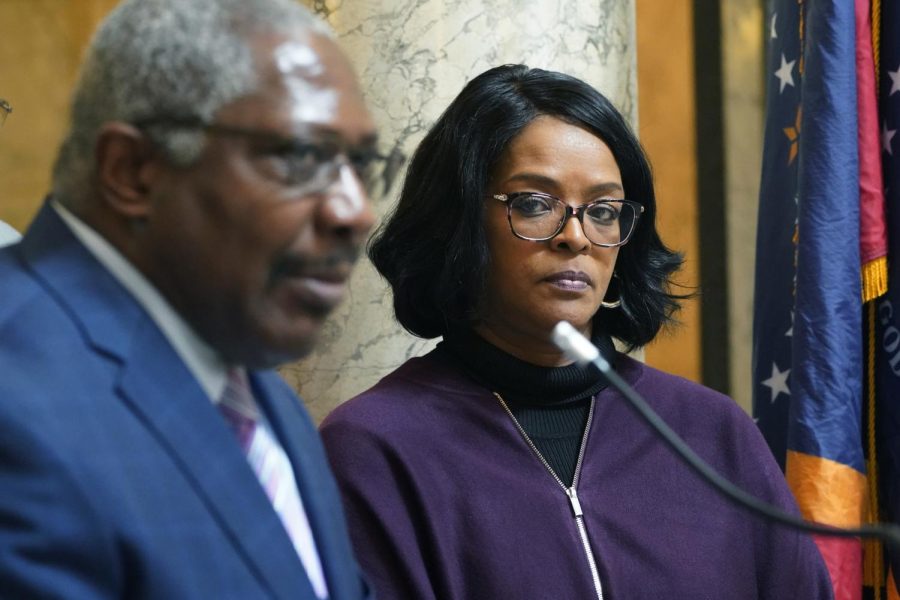Editorial | Mississippi’s new bill is problematic
Democratic State Sen. Angela Turner Ford of West Point, right, listesn as Sen. John Horhn, D-Jackson, foreground, expresses the Mississippi Legislative Black Caucus’ disappointment at the passing of House Bill 1020, legislation that would create a separate court system in the Capitol Complex Improvement District, at the Mississippi Capitol, Wednesday, Feb. 8, 2023, in Jackson.
February 9, 2023
The Mississippi House debated passing a bill to create a separate court system appointed by white state officials and create a larger police force in Jackson, a majority Black city. This bill would take away the right of the citizens of Jackson and Hinds country to vote for the judges and prosecutors in their district.
This bill would absolutely disenfranchise Black voters and continues to uphold the systemically racist legal system that contributes to the mass incarceration of Black people. Residents of Jackson and Hinds county should have the ability to vote for the people representing them and not have to worry about an increased police presence in their county.
Unlike every other region in Mississippi, this bill would allow the white chief justice of the Mississippi court to appoint judges for the district. It would also allow the attorney general to appoint four prosecutors, a court clerk and four public defenders to create an “inferior” court, as it is written in the state’s constitution. It is extremely racist to bar residents in an area that has a population that is 80% Black from voting for the people that represent them. Mississippi is already one of the most polarized states with the most gerrymandering, which has allowed Republicans to win more elections and silence the voices of Black voters in Mississippi who typically tend to be Democrats. This bill would silence more voters.
This bill also doubles the funding for the state’s capitol police to $20 million. Mississippi’s Capitol Police force is already under fire for multiple shootings of unarmed Black men, so they shouldn’t continue to receive funding when they are harming citizens rather than protecting them. While the lawmakers of this bill say that it is “safer” for the city, the reality is that it would make citizens less safe to have more police officers monitoring them. Over-policing leads to continual distrust between vulnerable communities and the police force. While having more police officers on the street leads to more arrests, it’s typically for victimless crimes, which leads to more disenfranchisement and tears apart communities.
Not only is this bill extremely harmful to the community affected by it, but it also is extremely expensive. It would cost $1.6 million annually to uphold this completely unnecessary bill. Mississippi is one of the most impoverished states, with poverty rates nearly as high as 20%. It would make more sense to use these funds to help uplift the community rather than over-police it and silence its voice by appointing judges rather than allowing citizens to vote.
The bill is also dangerous because it could inspire copycat bills in other states and other parts of Mississippi. Many other states with large but disenfranchised populations, such as Texas or Georgia, could see bills similar to House Bill 1020 in coming years, which is potentially dangerous for voting rights in the coming years. There is already an influx in funding for police departments throughout the country — even the ones accused of shooting unarmed Black men such as Mississippi’s Capitol Police force. This bill sets a dangerous precedent and should not pass in the state of Mississippi or anywhere else.



